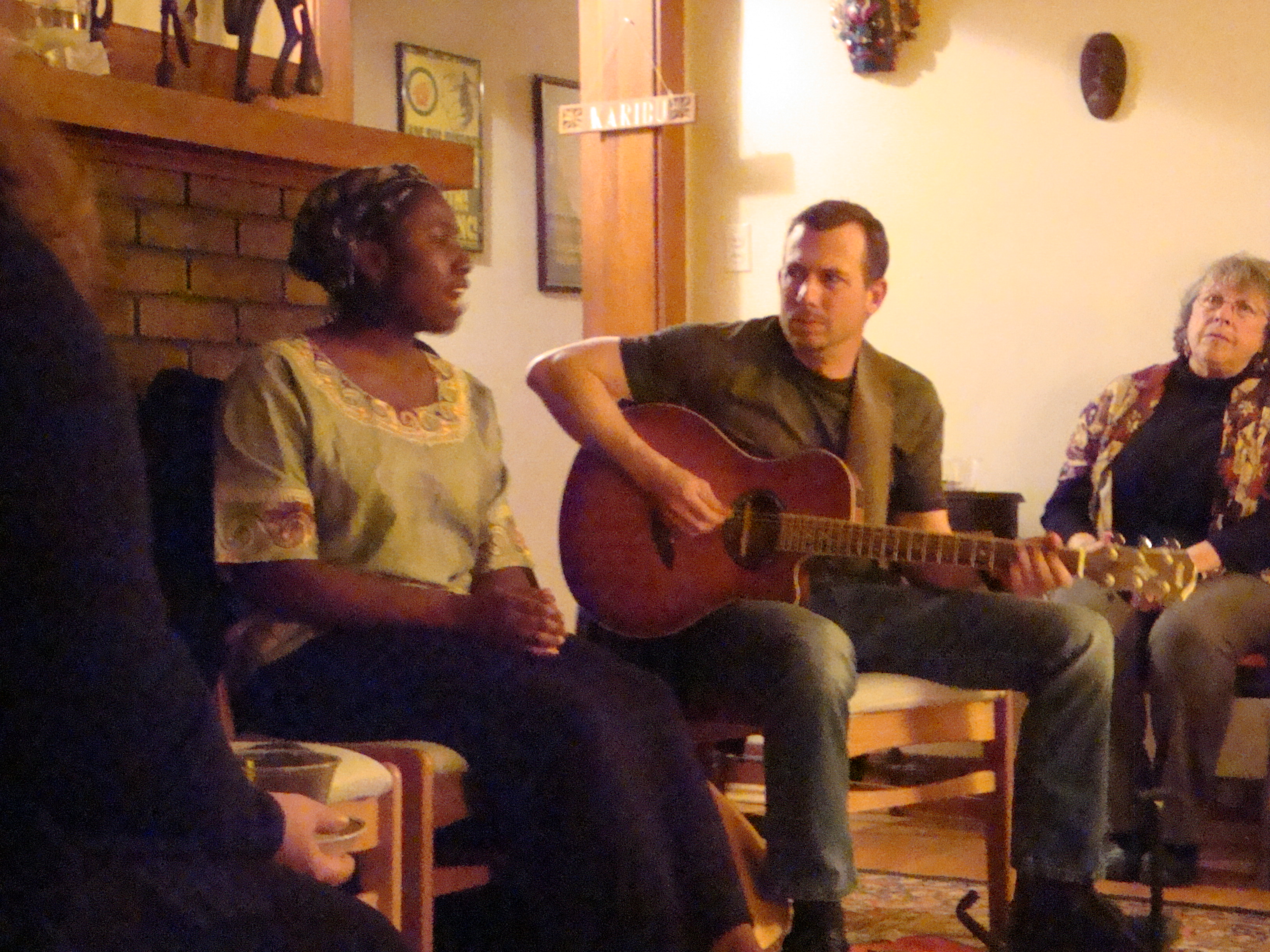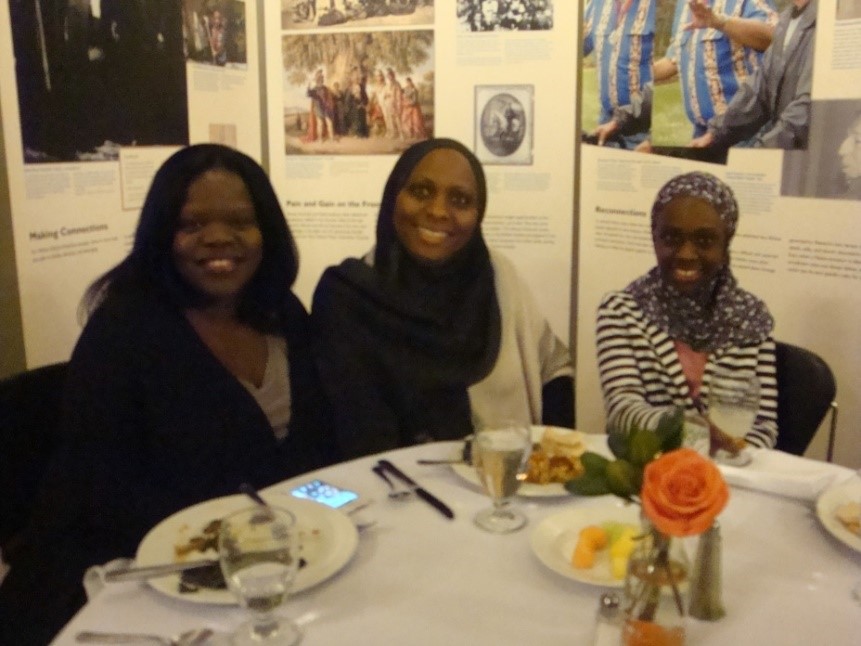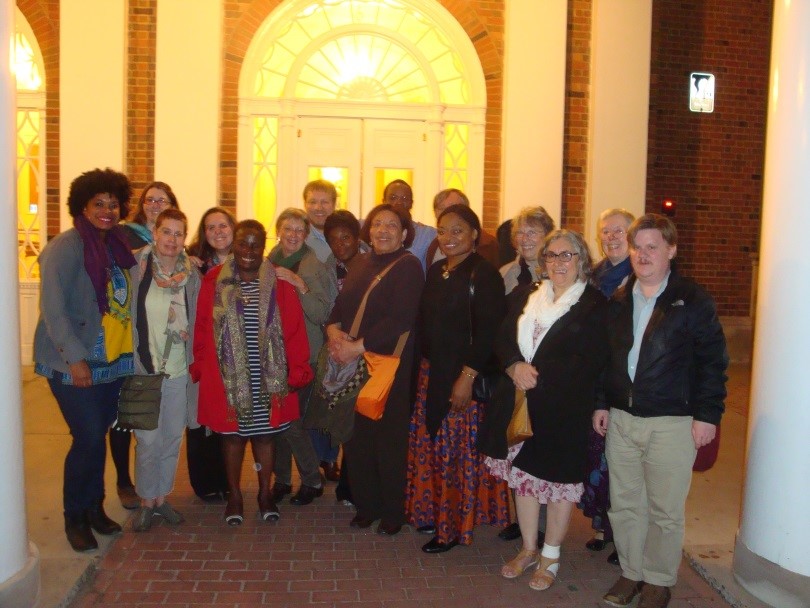
Information workers from the Africana Librarians Council pose outside Illini Union on their last evening in Urbana-Champaign
Chicago, Illinois. Bloomington, Indiana. Madison, Wisconsin. New Haven, Connecticut. Boston, Massachusetts. Los Angeles, California. From far and wide the Africana librarians came. Meeting for their biannual reunion, some 25 librarians, all members of the Africana Librarians Council (ALC), gathered in Urbana-Champaign over the April 24th weekend. Organized by Dr. Atoma Batoma, the International and Area Studies’ current African Studies librarian, and Al Kagan, Dr. Batoma’s predecessor, the weekend was full of important discussions of the group’s progress and priorities, entertainment, networking and touring.
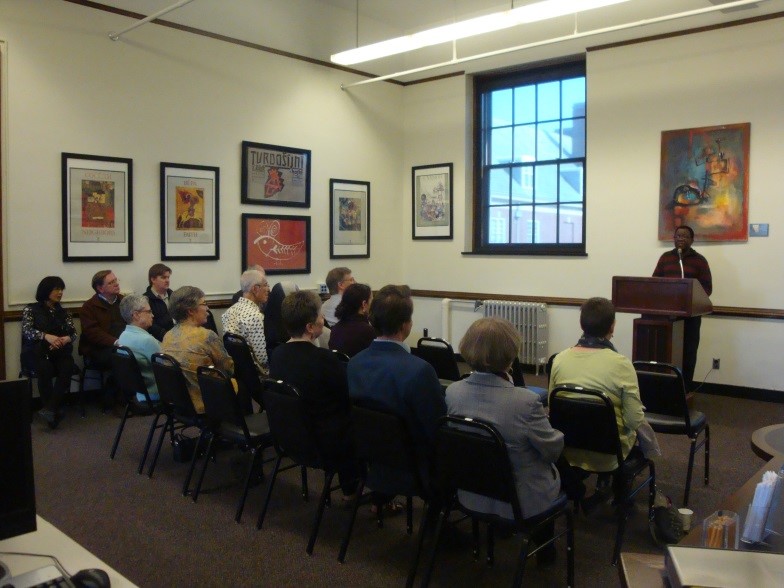
Current African Studies librarian Dr. Atoma Batoma addresses his guests during Thursday afternoon’s reception.
The librarians were warmly received at a Thursday reception in the International and Area Studies Library where University Dean Wilkin addressed the group. The meet and greet gave the information professionals a chance to say hello to familiar faces and to meet new ones. It was the evening’s events, however, that further warmed the tone of the affair. Guests were invited to the campus’ YMCA for dinner where traditional African foods including chicken yassa, a dish native to Senegal and common in other Western and coastal regions of Francophone Africa, and jollof rice were served. Local band Super Mazumzum played popular covers by African musical artists Miriam Makeba (South Africa), Fela Kuti (Nigeria) and Rex Lawson (Nigeria). Zambian graduate student at the University of Illinois Chipo Sakufiwa and guitarist Rick Deja led the group’s musical renditions.
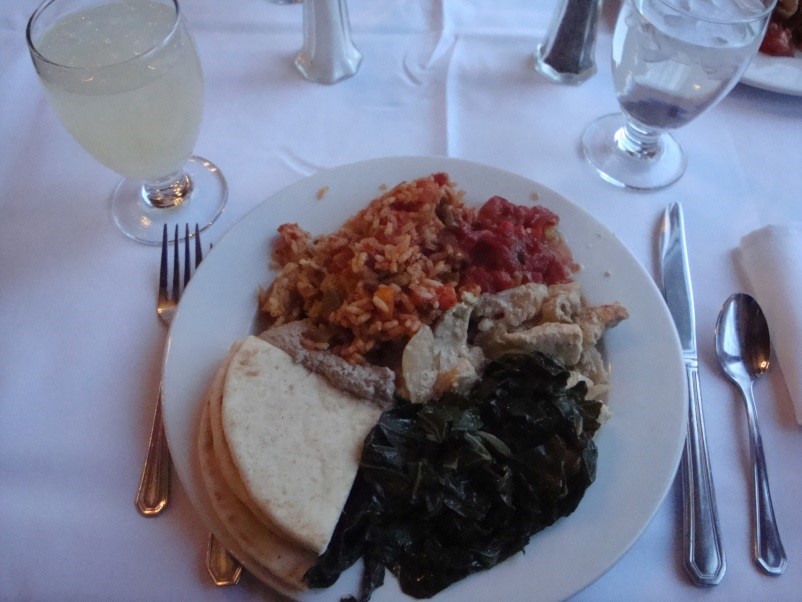
Traditional West African dishes of chicken yassa and jollof rice are served at the Thursday evening reception.
After dinner, University of Illinois entomology professor Dr. Barry Pittendrigh and Assistant Director of the Center for African Studies Dr. Julia Bello Bravo gave an enlightening presentation on their work with and for Scientific Animations Without Borders (SAWBO). SAWBO aims to provide animated, educational content in video format to people and communities whose literacy levels are diverse and whose information needs are high. Taking advantage of a strong trend known as “m-learning,” the use of mobile devices to address a variety of learning needs, Dr. Pittendrigh encouraged audience members to download and test SAWBO’s application. He emphasized the versatility of this platform in developing accessible media related to healthcare, women’s empowerment and agriculture in a variety of languages spoken around the world. Lastly, Extension System In Your Wallet (ESIYOW) was distributed to all in attendance which comes in the shape of a business card and serves as a highly portable and convenient USB drive for quick and easy information transfer.
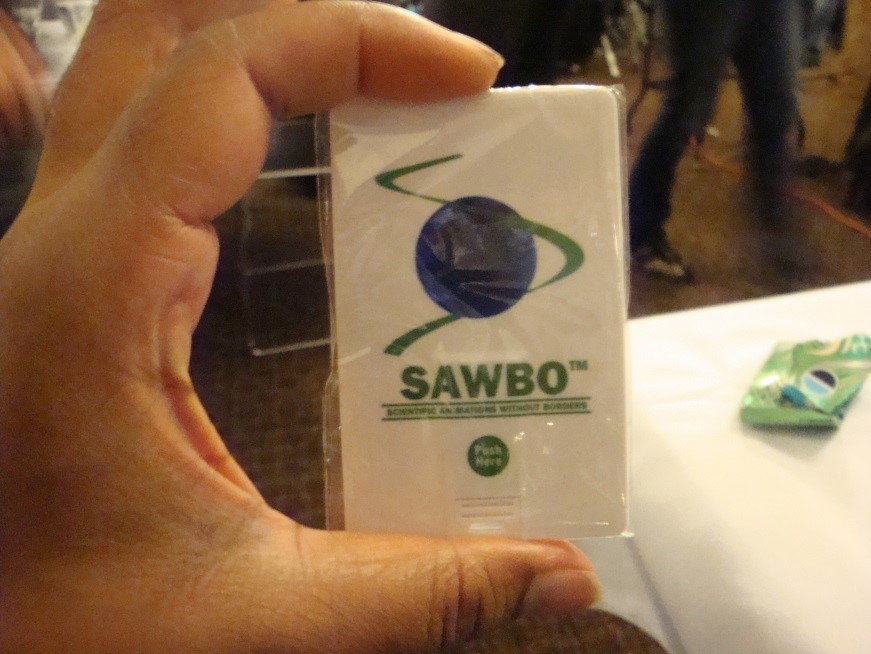
Scientific Animations Without Borders (SAWBO) representatives distribute unconventional USB drives to ALC guests.
The following day, the ALC’s formal meetings began. Head of the International and Area Studies Library Steve Witt spoke to the audience regarding his experience overseeing the merging of multiple different area studies groups that were once largely autonomous. These include (Sub-Saharan) African Studies, North African and Middle Eastern Studies, Slavic, East European and Eurasian Studies, South Asian Studies, Chinese Studies, Korean Studies, Latin American and Caribbean Studies and a few more. This compiling of area studies inspired questions regarding professional buying trips supported by the university, the differences between area studies librarians and subject specialists and how to adequately provide support staff for such a diverse library. Other agenda items included the discussion of developing an online bibliography of Africa course that would be available to students at multiple universities, Title VI (a government source of funds stemming from the Higher Education Act of 1965), and upcoming panels and committees.
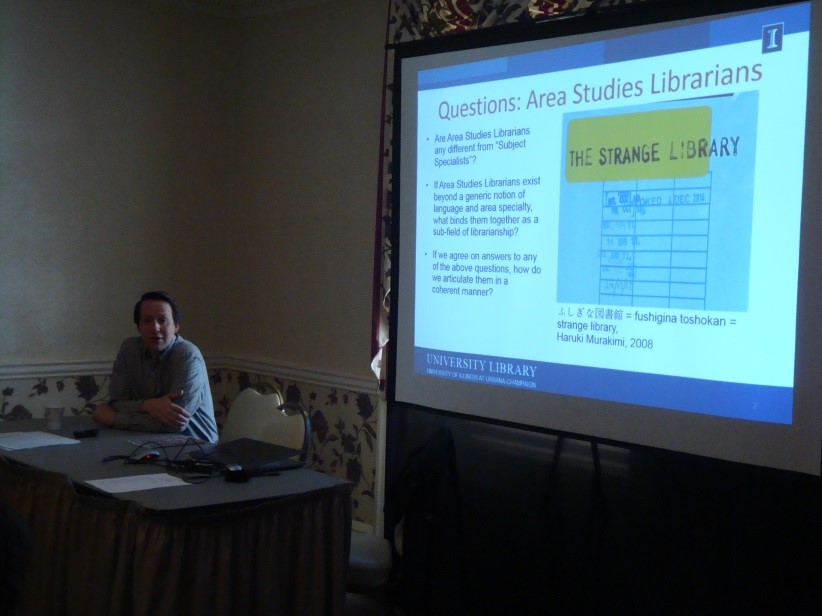
Head of the International and Area Studies Library Steve Witt addresses the Africana Librarians Council.
The next evening, Al Kagan invited everyone to his home where the next generation of Africana librarians was discussed, Sakufiwa returned to serenade the group and dinner was catered by local restaurant Layalina Mediterranean Grill. This event was one of Dr. Batoma’s and Al Kagan’s many collaborations, an important one being their 2014 joint publication Reference Guide to Africa which was acknowledged earlier this month by the Research and Publication Committee (RPC). Al Kagan’s strong structure for the regularly offered U of I course LIS 530M Bibliography of Africa lives on and is led through the Graduate School of Library and Information Science (GSLIS). Overall, the weekend was spent in enriching communion, honoring the important work Africana and area studies librarians and library workers carry out in representing a continent, its histories and its many peoples.
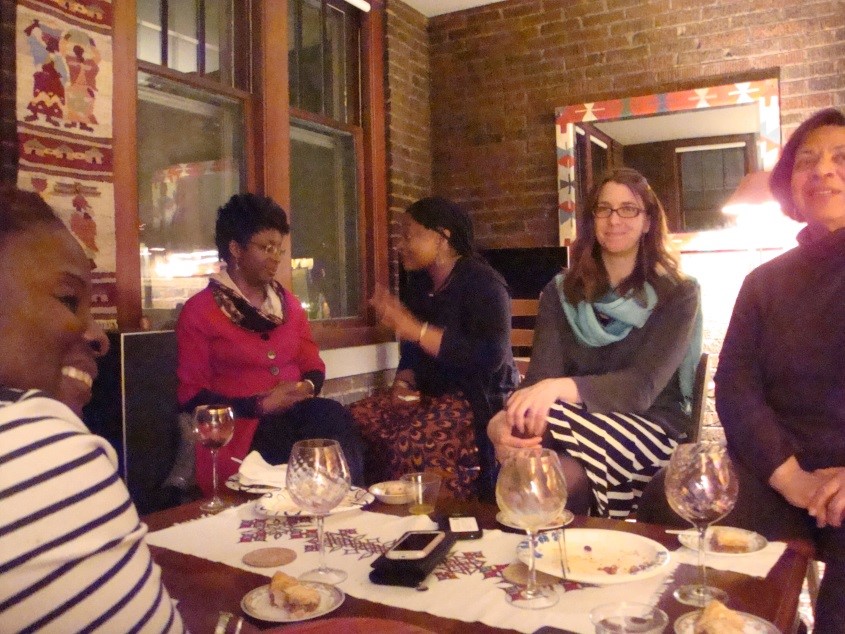
Africana librarians from various institutions of higher education chat post-council meetings at Al Kagan’s home.
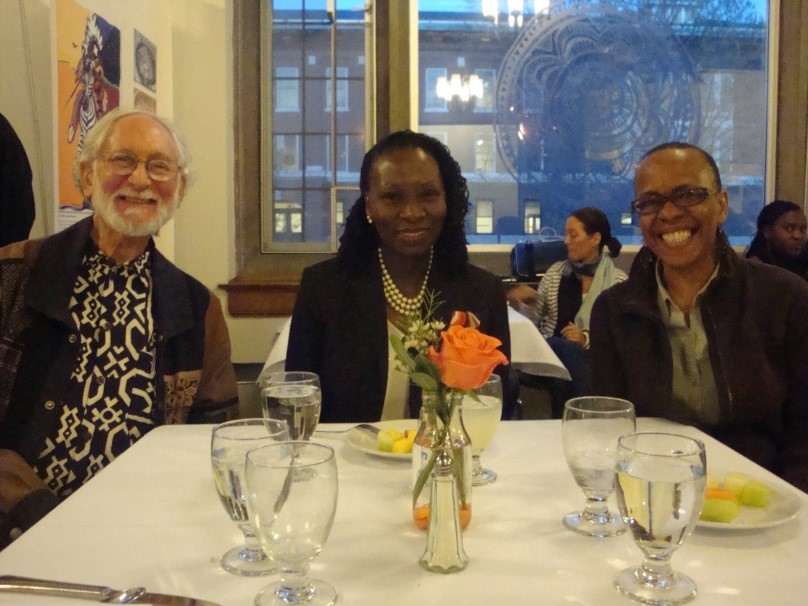
From left to right: Former African Studies Librarian Al Kagan, current Vice Provost for International Affairs and Global Strategies Reitumetse Obakeng Mabokela and U of I Graduate School of Library and Information Science (GSLIS) Alumna Inka Olasade
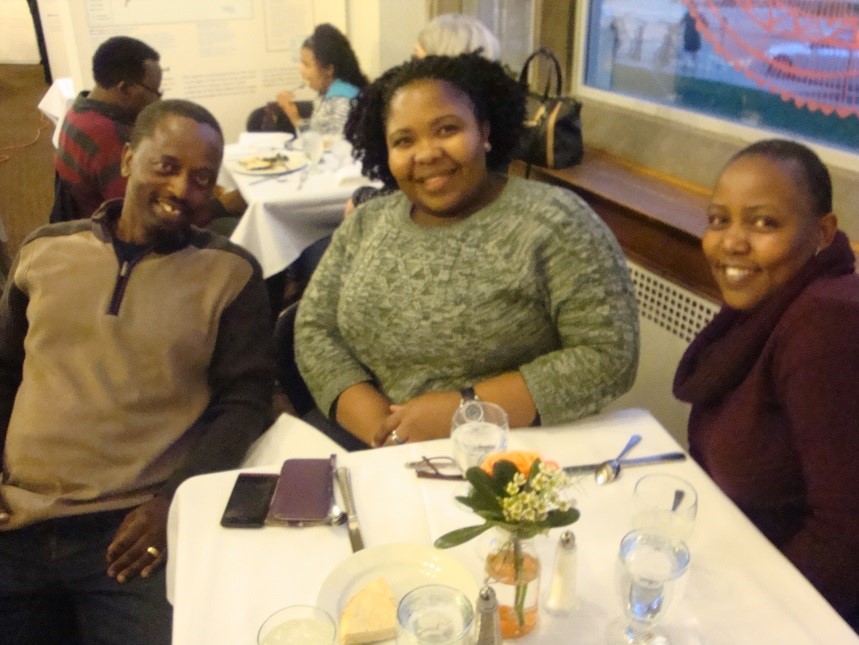
Current U of I graduate students from left to right: Mbhekiseni “Bheki” Madela from South Africa, Telamisile Mkhatshwa from Swaziland and Tumani Malinga from Botswana


